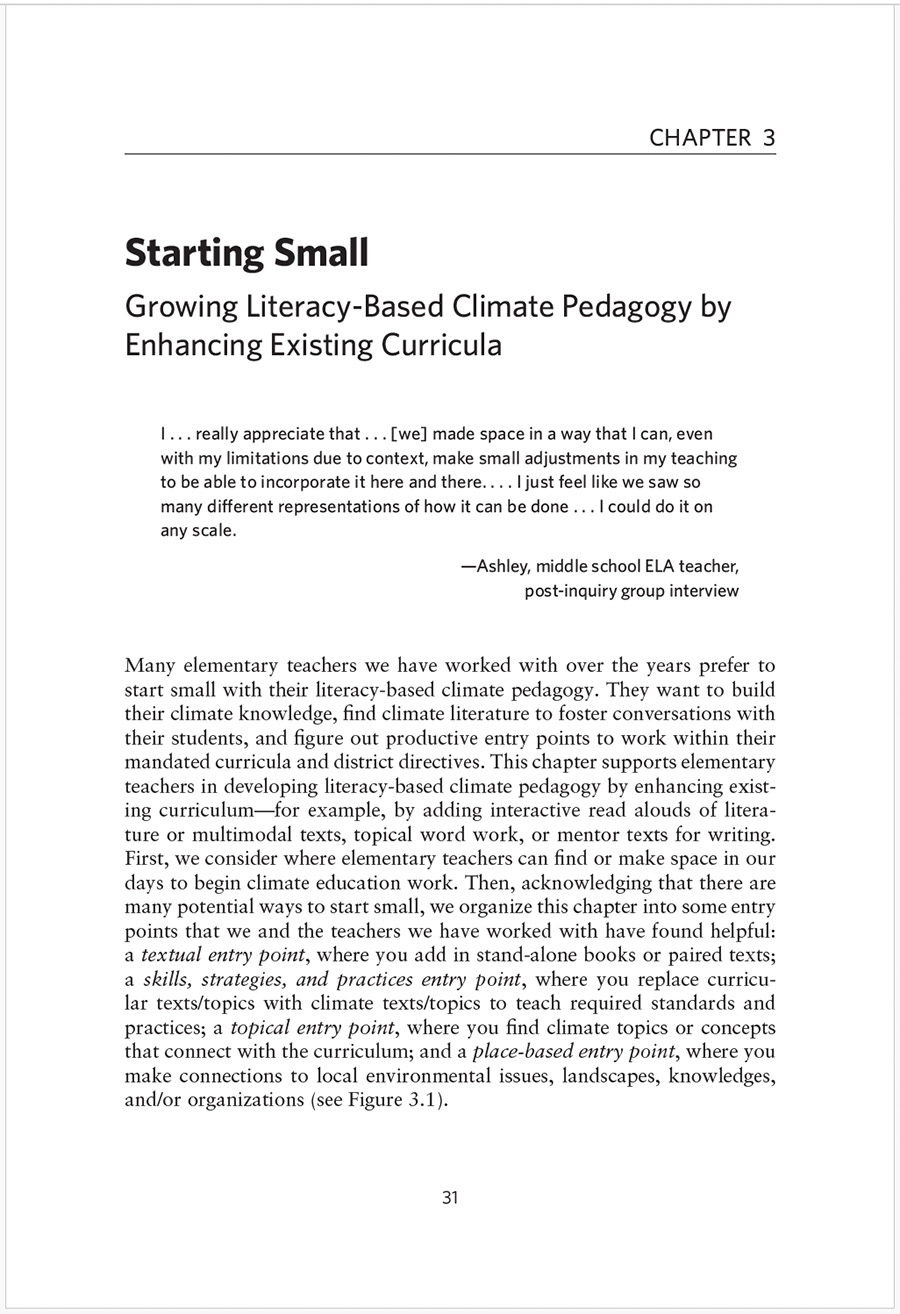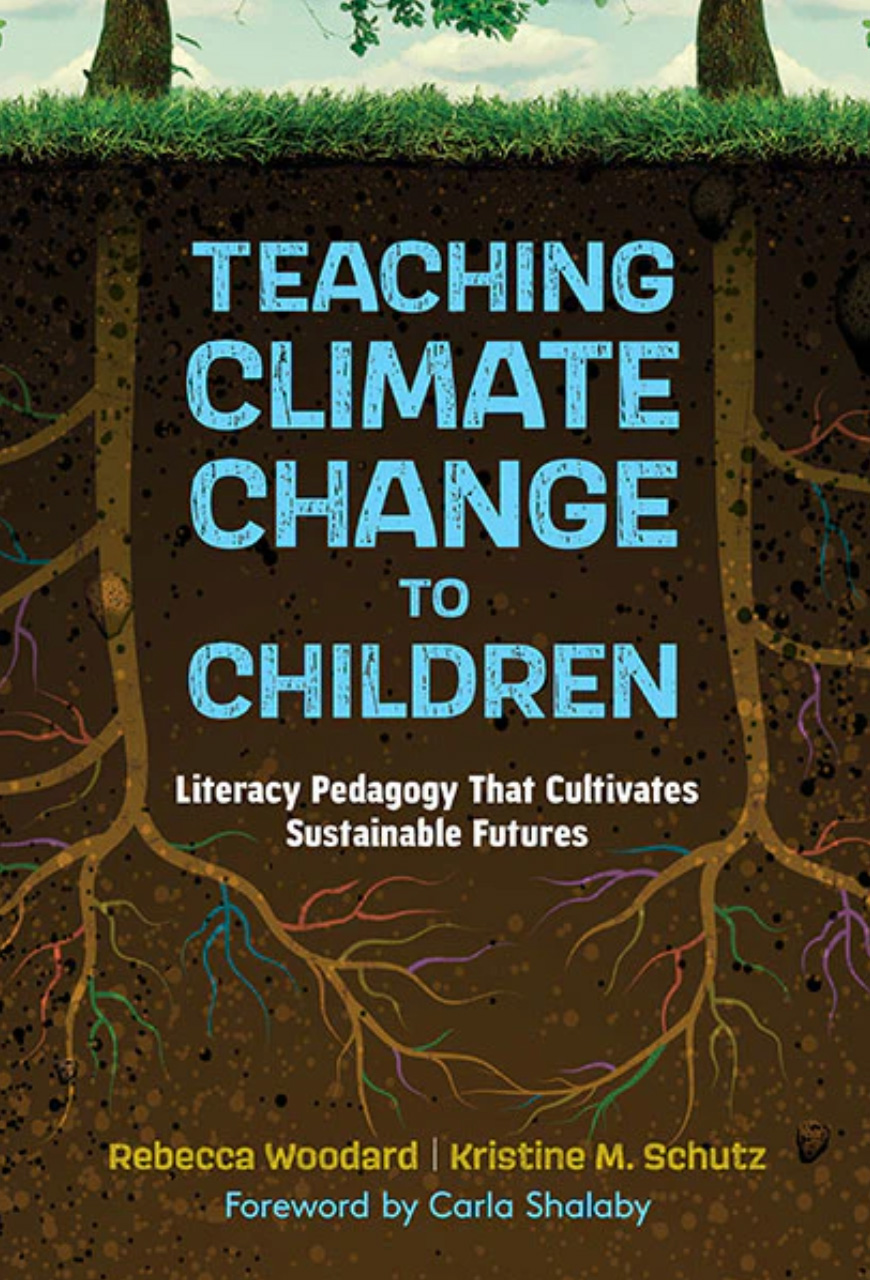Content-Area Literacy
Starting Small: Growing Literacy-Based Climate Pedagogy by Enhancing Existing Curricula
A Chapter from Teaching Climate Change to Children: Literacy Pedagogy That Cultivates Sustainable Futures
Summary:
This chapter supports elementary teachers who want to develop literacy-based climate pedagogy by enhancing existing curriculum—for example, by adding interactive read-alouds of literature or multimodal texts, topical word work, or mentor texts for writing.
Download “Starting Small: Growing Literacy-Based Climate Pedagogy by Enhancing Existing Curricula” (PDF)
“Stories are an important part of climate change work. They can persuade others by helping make the impact of climate change more real; they can also make inaccessible information more relatable; and they are essential to building inclusive and effective movements.”
Also Recommended
See allTeaching from an Ethical Center: Practical Wisdom for Daily Instruction
Author Cara Furman talks with Stephanie Jones, co-director of the Red Clay Writing Project, about bringing ethics, philosophy, and body-centered practices into teaching.
Read more
Writing Our Future: Our Towns, Our Stories
Our Towns, Our Stories provided students an opportunity to try their hand at journalistic writing about the place they call home. Writer-facing modules and resources are available along with reflections by students about their process.
Read more


